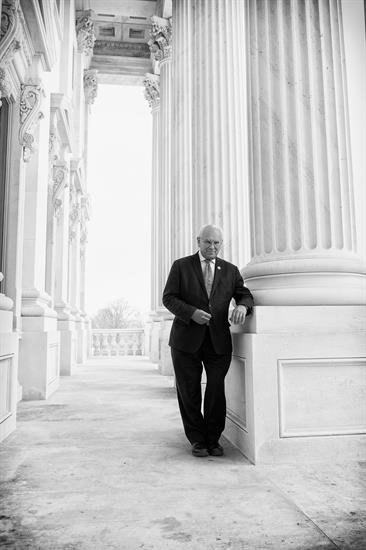- Home
- About
-
Constituent Services
- Academy Nominations
- Community Project Funding
- Congressional Art Competition
- Congressional App Challenge
- Congressional Commendation
- Event Invitation
- Grants
- Help with a Federal Agency
- Internships
- IRA Clean Energy Consumer Benefits
- Know Your Rights: Immigration
- Request a Meeting
- Request Surplus Books
- Presidential Greeting
- Visit Washington D.C.
- Issues & Legislation
- News
- 20th District
- Contact

Press Releases
Tonko Opening Statement on National Drinking Water & PFAS LegislationEnvironment & Climate Change subcommittee to review bills increasing access to safe, clean water
Washington,
June 16, 2021
WASHINGTON—Congressman Paul D. Tonko, Chair of the Energy and Commerce Subcommittee on Environment and Climate Change, made his opening statement in the subcommittee today on legislation to support America’s drinking water infrastructure and address PFAS contamination across the country. Full text of that statement is included below. The three bills being addressed in the markup include Rep. Tonko’s AQUA Act, national drinking water legislation that would invest heavily to repair and upgrade U.S. drinking water systems and remove all lead drinking water components nationwide—400,000 of which remain in schools and childcare facilities—as well as H.R. 2467, the PFAS Action Act of 2021, for which Tonko has been a chief architect and driving force in Congress. Watch Rep. Tonko’s opening statement HERE or read as prepared:
We know our water systems’ needs are immense. The EPA’s 2018 Needs Survey estimated that over $472 billion is required to maintain our drinking water systems over the next 20 years. And today, the federal share of water infrastructure spending pales in comparison to our contributions to roads and bridges spending. We need to increase the federal commitment, which is what H.R. 3291 would do. H.R. 3291, the AQUA Act, would reauthorize key drinking water programs, including the Drinking Water State Revolving Fund, for 10 years. It also establishes a $45 billion program, through the SRF, to replace lead service lines. This is in line with President Biden’s proposed American Jobs Plan. In addition to investing in our nation’s failing water infrastructure, it would make critical reforms to the Safe Drinking Water Act to improve EPA’s standard setting process and put the agency to work on standards for a few troubling emerging contaminants.
We also know the financial stress on local governments and their water customers have only become more acute due to the COVID-19 pandemic. The AQUA Act authorizes $4 billion for an emergency relief program to provide forgiveness for utility customers facing debts and unpaid fees since March 2020. This provision was also the subject of our recent legislative hearing as H.R. 3292, introduced by Reps. Dingell and Tlaib, and I thank them for their efforts on this front. Today we will also consider H.R. 3293, the Low-Income Water Customer Assistance Programs Act, bipartisan legislation introduced by Reps. Blunt Rochester and Katko. Water affordability is becoming a growing challenge for many American families. And as our water systems continue to fall into disrepair and have added financial stresses of leaks and main breaks, these issues will only get worse. Congress provided short-term relief in recent COVID packages, but I believe we must look to establish a permanent program at EPA, similar to how the Low-Income Home Energy Assistance Program helps families with critical heating and cooling energy costs. I want to commend Ms. Blunt Rochester for her work on this legislation, which garnered significant support and praise from a diverse group of stakeholders at our legislative hearing last month. I look forward to working with members to ensure Americans’ most vulnerable families have affordable access to safe water. Finally, the Subcommittee will consider H.R. 2467, the PFAS Action Act. Sadly, many Members know how the health and safety of our constituents have been compromised by dangerous PFAS chemicals. I have visited the communities and met the families who are dealing with PFAS exposure and environmental contamination. The PFAS Action Act takes a much-needed comprehensive approach to PFAS, including provisions across numerous statutes within our jurisdiction, such as the Safe Drinking Water Act, Superfund, TSCA, and the Clean Air Act. As a result, this bill would reduce Americans’ exposure to PFAS through our air, water, and consumer products. It would increase testing, promote consumer awareness, and ensure disclosure, treatment, and remediation when PFAS is released into the environment. The bill will hold PFAS polluters responsible, require any national drinking water standard to ensure vulnerable groups including pregnant women, infants, and children are protected, and take other critical steps to reduce PFAS exposure and expedite cleanups. The PFAS Action Act was subject to a robust committee process in the 116th Congress. It was comprised of over a dozen standalone bills, which were subject to a legislative hearing and a subcommittee markup. And the reported bill passed the House with bipartisan support in 2020. We then continued to negotiate with the Senate on many of these provisions. Despite the change in administration, it is clear Congress needs to continue to push this issue and ensure health-protective steps are taken as quickly as possible. I want to thank Reps. Dingell and Upton for their continued leadership on PFAS. I hope this is the year we get these provisions across the finish line.
|
